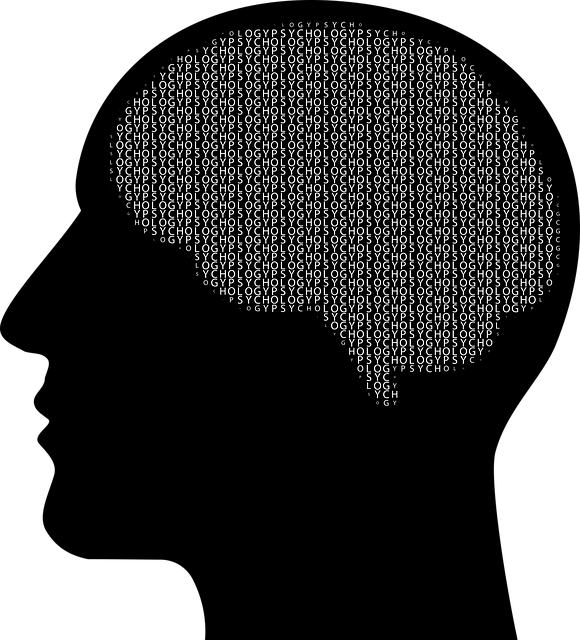Risk assessment in elderly care involves a comprehensive evaluation of physical, cognitive, social, and mental health through psychological testing. This process informs tailored harm minimization plans that prevent injuries and address emotional well-being by combating issues like depression with therapy. Integrating conflict resolution and emotional well-being promotion ensures holistic support. Psychological testing provides critical insights into mental health vulnerabilities, guiding personalized interventions for seniors. Therapy for elders focuses on self-care routines, crisis intervention, and targeted strategies to mitigate harm, fostering dignity, resilience, and confidence. Regular evaluation and monitoring, incorporating feedback and diverse data, optimize care quality through relevant, effective interventions like mental wellness podcasts and stress management workshops.
Risk assessment and harm minimization planning are crucial aspects of providing safe and effective care, especially in elderly settings. This comprehensive guide explores essential components for ensuring the well-being of vulnerable elders. We delve into understanding risk assessment in elderly care, the role of psychological testing in unlocking insights for tailored interventions, and practical harm minimization strategies for therapists. By implementing these strategies, professionals can create robust plans, enhance care quality, and foster positive outcomes through therapy for elders.
- Understanding Risk Assessment in Elderly Care
- Psychological Testing: Unlocking Insights for Safe Care
- Harm Minimization Strategies for Therapists
- Creating a Comprehensive Plan for Vulnerable Elders
- Implementing and Monitoring Interventions Effectively
Understanding Risk Assessment in Elderly Care

In elderly care, risk assessment is a critical process aimed at identifying and mitigating potential hazards that may impact an older adult’s safety and well-being. This involves a comprehensive evaluation of various aspects of their lives, including physical health, cognitive abilities, social interactions, and mental state. By employing psychological testing and other assessment tools, caregivers can gain valuable insights into the risks that might otherwise go unnoticed. Such assessments are essential for developing effective harm minimization plans tailored to each individual’s unique needs.
The goal is not only to prevent injuries or accidents but also to enhance the emotional well-being of elders. For instance, therapy for elders can address psychological issues like depression, a common concern among the elderly population. By integrating emotional well-being promotion techniques and conflict resolution strategies into care plans, risk assessment plays a pivotal role in fostering a higher quality of life for seniors, ensuring they receive holistic support that addresses both physical and mental health considerations.
Psychological Testing: Unlocking Insights for Safe Care

Psychological testing plays a pivotal role in risk assessment for elderly care, offering valuable insights into an individual’s mental state and potential vulnerabilities. These assessments go beyond basic cognitive function and explore various aspects of psychological well-being, including mood management and coping skills development. By integrating such tests into care plans, professionals can proactively identify and address concerns that may otherwise remain hidden.
This approach is particularly crucial in the context of therapy for elders, as it enables more personalized interventions. For instance, public awareness campaigns focused on mental health among seniors can be designed based on testing results, targeting specific challenges like loneliness or depression. By understanding individual needs, caregivers and therapists can implement tailored strategies to minimize potential harm and enhance overall well-being, ultimately fostering a safer care environment.
Harm Minimization Strategies for Therapists

In the realm of therapy for elders, harm minimization strategies are essential components of a comprehensive risk assessment and planning process. Therapists play a pivotal role in ensuring the well-being and safety of their elderly clients by implementing various interventions tailored to individual needs. One effective approach is encouraging the development of a self-care routine for better mental health. This can involve simple yet powerful practices such as regular exercise, mindfulness techniques, and engaging hobbies that promote emotional healing processes. By fostering these habits, therapists empower elders to maintain resilience and cope with potential challenges independently.
Additionally, crisis intervention guidance is a crucial aspect of harm minimization planning. Therapists should be equipped with the skills to recognize warning signs of distress or suicidal ideation in older adults. Prompt and appropriate interventions can prevent catastrophic outcomes and facilitate effective support during emotional crises. Through tailored psychological testing and ongoing assessment, therapists can identify risk factors unique to each elder and develop targeted strategies to mitigate potential harm, ensuring a safer and more secure therapeutic journey for their clients.
Creating a Comprehensive Plan for Vulnerable Elders

Creating a comprehensive plan for vulnerable elders involves a multifaceted approach to ensure their well-being and safety. This includes thorough risk assessment, identifying potential hazards in their living environments, and implementing tailored harm minimization strategies. One critical component is integrating therapy for elders, focusing on both physical and mental health. Psychological testing can help pinpoint specific needs, such as cognitive decline or depression, which often go unnoticed but significantly impact their quality of life.
Addressing mental illness among the elderly requires stigma reduction efforts to encourage open conversations about psychological well-being. Through supportive services and community engagement, vulnerable elders can access emotional healing processes that promote inner strength development. This holistic approach ensures not only their physical safety but also fosters a sense of dignity and empowerment, enabling them to navigate challenges with resilience and confidence.
Implementing and Monitoring Interventions Effectively

Implementing and monitoring interventions effectively is a crucial aspect of risk assessment and harm minimization planning. Once strategies like therapy for elders or psychological testing are put in place, regular evaluation becomes essential to ensure their success. This involves tracking progress, gathering feedback from participants, and analyzing data to make informed adjustments. For example, mental wellness podcasts or stress management workshops organized as interventions should be evaluated for their impact on the target group’s mental health and overall well-being. By measuring these outcomes, professionals can identify what works best and make necessary improvements to prevent burnout among elders.
Regular monitoring allows for a dynamic approach, ensuring that interventions remain relevant and effective over time. It involves continuous learning and adaptation based on new research findings or changing needs of the population. Incorporating feedback mechanisms and utilizing various data sources enable practitioners to optimize their strategies, ultimately enhancing the overall quality of care provided.
Risk assessment and harm minimization planning are indispensable tools in elderly care, ensuring safety and enhancing well-being. By understanding risk factors, utilizing psychological testing for insightful care, and implementing targeted strategies, therapists can develop comprehensive plans tailored to vulnerable elders. Effective interventions require ongoing monitoring and adjustments, fostering a supportive environment that promotes resilience and minimizes potential harms, ultimately enriching the lives of older adults through personalized therapy and psychological testing.








